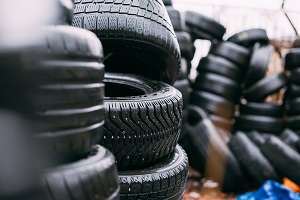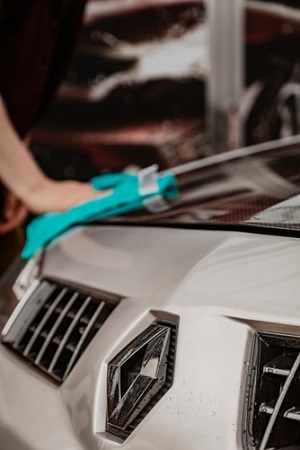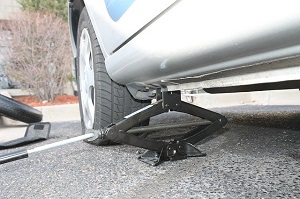Posted on 9/28/2020

The tires on your vehicle and vehicles across the world, was a result of multiple inventors across several decades. Robert William Thomson invented the first vulcanized rubber pneumatic tire in 1845, but it was too costly and ahead of its time and attracted little interest. In the 1880’s John Boyd Dunlop was the inventor of the first practical inflatable tire for bicycles. Several years later, André Michelin and his brother Edouard were the first to use pneumatic tires on an automobile, but they were not successful in making them durable. It wasn't until Philip Strauss invented the combination tire and air-filled inner tube in 1911 that pneumatic tires could be used on automobiles with success. Tires are made of strong, flexible rubber attached to the rim of a wheel to provide a gripping surface for traction and serve as a cushion for the wheels of a moving vehicle. Tires offer your first and only contact with the road and allow effective steering, braking, accelerating, and turning ... read more
Posted on 9/11/2020

We live busy lives and often don’t have time for tasks like cleaning our car. Cleaning your car is an important aspect of car maintenance that many don’t realize the benefits of keeping up with. A clean car is not only aesthetically pleasing, but it can also increase the resale value of your car. While some clean their cars themselves, others pay a professional car wash to do the work for them. Ideally, you should get your car cleaned on a weekly basis. However, many car owners clean their cars only when it is dirty. How frequently you drive your car also matters. As a general principle, the more miles that you drive, the more frequently you will need to clean the car. The climate and air temperature are also important considerations. Snow, salt and grit from the roads can quickly erode and damage your paint work, and high temperatures can cause erosion to be accelerated, as chemicals in contaminants become more active in hot temperatures. Why You Should Clean Your Car More Often ... read more
Posted on 8/31/2020

Many new cars are now missing a spare tire and are coming from the factory equipped with tires or inflator kits that claim to make a spare tire unnecessary. We usually don’t think about the need for a spare tire until we need it. You should always have a spare tire in your vehicle because you never know when you’ll get a flat or puncture and be on the side of the road stranded. A spare tire and wheel provide you with a direct replacement, allowing you to become mobile again until you get a tire repair service. Many spare tires for modern cars are smaller than normal tires to save on trunk space, gas mileage, weight, and cost, and they should not be driven on for long before replacement with a full-size tire. Don't wait until you're on the side of the road to invest in a spare tire. If your vehicle doesn’t come equipped with a spare, purchase a spare tire so you can safely replace a damaged tire, and travel to your nearest auto repair shop for proper service. Types of Spare Tires A Ful ... read more
Posted on 8/13/2020

Your vehicle is a good way to maintain social distance compared to taking the bus, train or a taxi. If you are traveling in a vehicle with other people, you can still ensure that social distancing is being practiced by sitting at the far opposite side of the car (2m or 6 feet separation). You also need to consider how many people are in the cab, perhaps using a larger vehicle to provide more distance between occupants and always ensure good ventilation by keeping windows open where possible. Social distancing simply means keeping a safe distance away from other people and includes measures such as not shaking hands and staying about 6 feet away from other people. In your vehicle, staying 6 feet apart is difficult, but there are other preventative measures you can take. There should also be routine cleaning and disinfection of frequently touched objects and surfaces such as door handles, steering wheels, and controls. Of course wearing a mask may also be a good idea. Social Distancing ... read more
Posted on 7/17/2020

Your tires are your car's only connection to the road. Taking care of your tires will save you money on gas and a smoother, safer ride for you and your family. Your vehicle’s tires affect how your vehicle steers, how it brakes, and how it hugs the road. Your tires need to have the correct air pressure, tread depth, tire balance, and wheel alignment to be safe and cost-effective. If your car is left unused for an extended period of time, know that your tires and other components will still require maintenance and upkeep. Leaving a car unused for a long period could leave it vulnerable to problems with your battery, brakes, and tires. Tires will be prone to deteriorate, lose air pressure, and develop flat spots. When you decide to start driving your vehicle again, instead of the smooth ride you expected, it will be all bumps, thumps, and vibration due to ineffective tires. Here Is What Happens to Tires When a Vehicle Is Left Unused Tire Deterioration Although you will ... read more